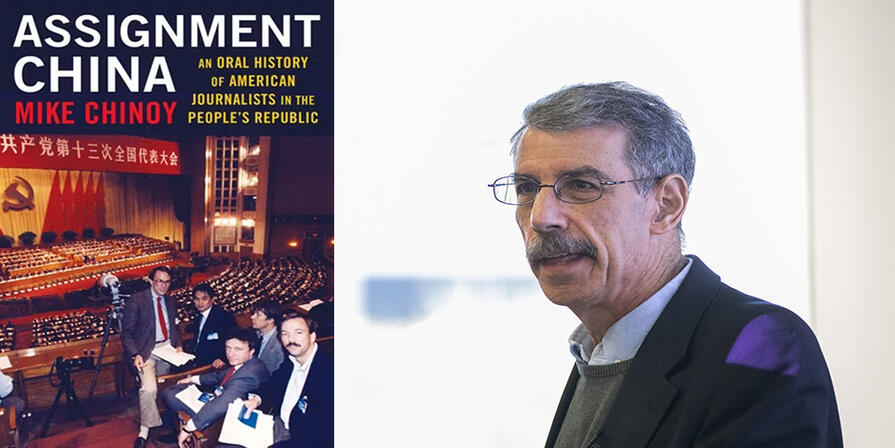American perceptions of and attitudes toward China have been profoundly shaped by media reports. In the USC U.S.-China Institute’s Assignment: China documentary series (USCI website | YouTube), we learned from the journalists producing those reports how they identified important and interesting stories and sought to tell them. USCI Senior Fellow Mike Chinoy has just published a well-received book drawing on those stories and more recent interviews on the expulsion of journalists and the tightening of controls on foreign correspondents in China. On April 3, he shared an overview of the book with an in-person USCI audience. That presentation is below.
This Assignment China presentation is also available from our YouTube channel.
Following his presentation, Chinoy talked with Clayton Dube and the audience about a variety of topics, including a comparison of foreign and Chinese state reporting on China and why he and many other journalists wanted to work in China. He highlighted what is lost when foreigner correspondents are not permitted to be based in China or are constrained in their work.
Mike Chinoy first visited China with a student group in 1973. Two decades later and then the CNN Beijing bureau chief, Chinoy retraced that trip and sought out Yu Kexin, a farmer who hosted a luncheon in his home. Chinoy says, “As soon as local officials were out of earshot, however, Yu confessed that almost everything I had seen during my first visit had been an illusion… To me, this episode underscores a central theme in any discussion about covering China — the difficulty of finding the truth in a vast, complicated country with a long history of distrust of outsiders and a secretive and authoritarian political system.” Chinoy worked for CBS and NBC before moving to CNN for more than two decades, serving as senior Asia correspondent. He has been a non-resident senior fellow at USCI since 2008. He was based in Beijing 1987-1993. His books include China Live and Meltdown: The Inside Story of the North Korean Nuclear Crisis. He now lives in Taipei.

